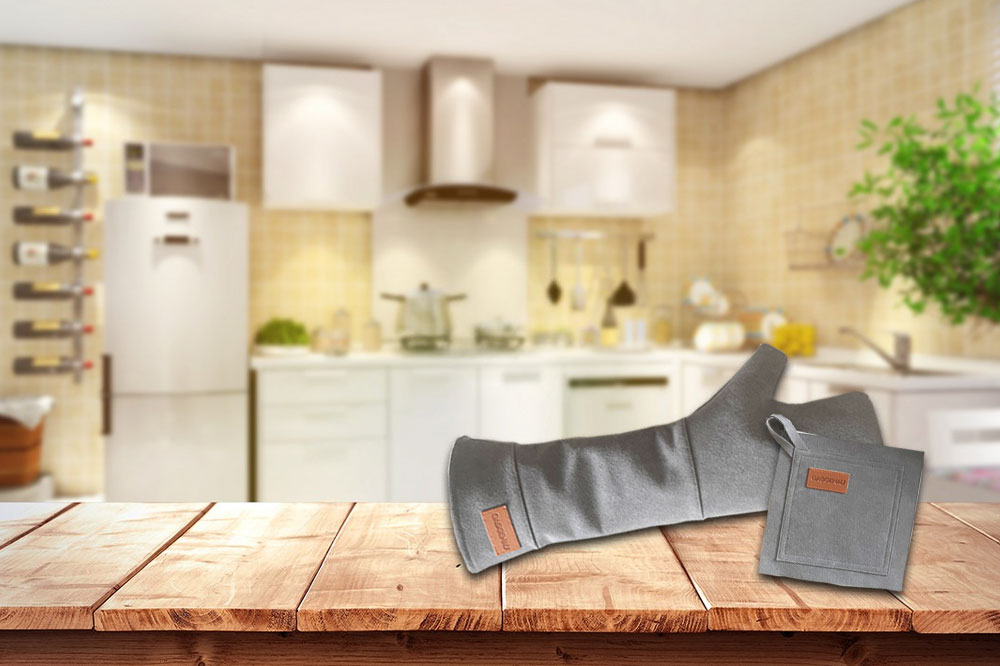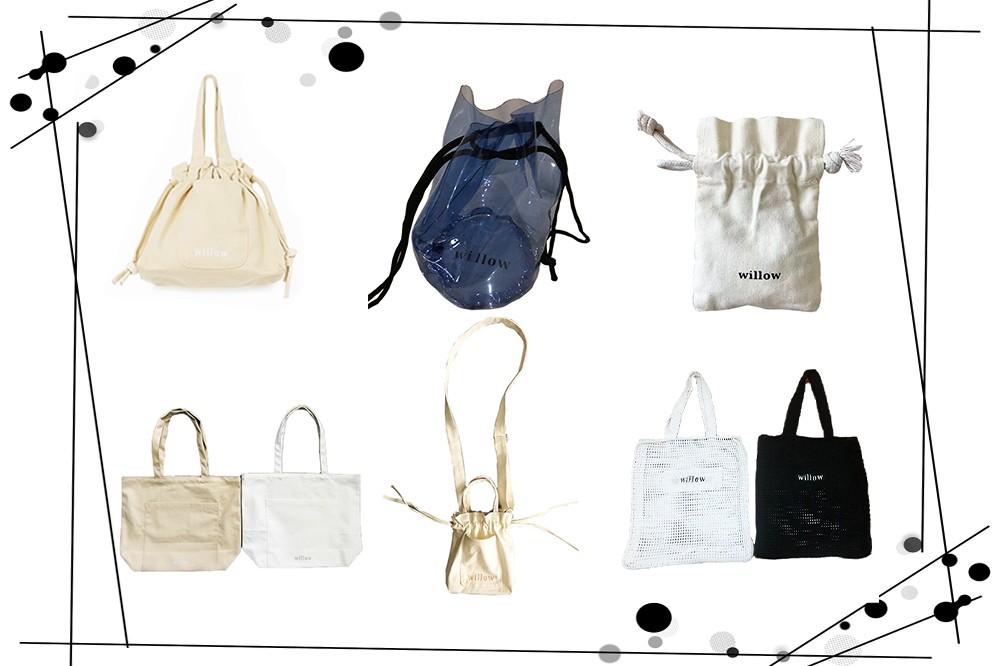
When choosing an apron, you need to consider its appearance, comfort, and practicality. There are different aprons on the market, and different apron fabrics will affect performance in daily use, maintenance, and lifespan. Whether you are looking for a more protective cloth apron for the workplace or a lightweight apron for casual dining, understanding the fabric is the first step to making a wise choice. Before we look at what specific apron fabrics are available on the market, let's take a look at the main factors to consider when choosing the apron fabric that best suits your needs.
What are The Common Apron Fabrics?
Knowing the wide range of choices offered by the market, selecting the ideal apron fabric can feel demanding. Every apron material—from solid polyester to breathable cotton—has advantages and drawbacks. The most often used varieties of cloth aprons are listed below to allow you to pick the best fit for your needs.

1. Cotton Aprons
Cotton aprons are a very popular choice. But it does have some shortcomings. Do you know? Cotton fabric for aprons has a strong water absorption capacity, which is an advantage in itself. However, when it absorbs soup, oil, or sauce, it is difficult to clean thoroughly and will leave yellow stains. If bleach is used, that part will fade and turn white, affecting the appearance.
Cotton aprons are also very prone to wrinkling after folding and washing, and they must be ironed to recover, which increases the time cost of use invisibly.
The cotton apron faded to varying degrees after multiple washes and no longer looked so new. These shortcomings make the cotton aprons unusable for a long time and require regular replacement .So between the softness and comfort of cotton fabric and its not-so-practicality, what choice would you make?
2. Polyester Apron
The advantages of polyester aprons are numerous, such as quick drying, water and oil resistance, non-wrinkling, and wear resistance. Will so many advantages make you overlook its disadvantages? Because of its strong water resistance and impermeability, it has poor breathability, which can make people feel uncomfortable in a hot working environment. Another drawback of polyester fabric is that it is highly prone to generating static electricity and attracting dust/hair. Some factories even use cheap and low-quality polyester fabrics for aprons that will emit chemical odors for a long time. When purchasing polyester aprons, it is essential to choose reliable and honest factories.
3. Oxford Cloth Apron
Oxford cloth aprons are very popular in some usage scenarios because they are waterproof, wear-resistant, and not easy to wrinkle. But do you know what its disadvantages are? Is this fabric apron really what you want? Its touch is stiff and not as soft as cotton cloth. It has poor breathability and is heavy, so it is not recommended to wear it for a long time.

4. Nylon Apron
Nylon aprons are favored because they are light, thin, and easy to carry. But can you accept its poor heat resistance? When you are too close to the stove/oven, it is easy to burn or deform. When you clean the kitchen or other places, if you accidentally spill chemical solutions containing excessive acidity or alkalinity or bleach on the nylon apron, it will change color and turn yellow.
5. Satin Apron
Have you ever used a silk apron? It is very smooth, soft, and skin-friendly. But if your nails are not trimmed neatly, it's very easy to pull out a thread from your silk apron. Would you still choose it without hesitation because of its beauty?
Top 3 Things To Be Wary Of When Choosing An Apron
Despite at first seeming to choose an apron seems easy, there are hidden dangers that could compromise its comfort, longevity, and even safety. Whether you're working in an industrial environment, serving in a restaurant, or cooking at home, choosing the wrong apron fabric or style might result in unnecessary expenses and hassle. Various circumstances indicate different apron materials; what works in one may be completely inappropriate in another. Let's examine more closely the most important factors to consider while choosing a cloth apron for various applications.
In Family Kitchen
Claims that an apron is universally suitable for all kitchen tasks are unrealistic. As we discussed earlier, every fabric has its strengths and weaknesses.
When grilling, avoid aprons made of synthetic fabrics. Hot oil splatters can burn tiny holes in polyester.
When baking, steer clear of 100% cotton aprons. Flour tends to stick stubbornly to cotton and is hard to shake off.

In Catering Commercial
The allure of seemingly cheap disposable aprons is strong—many think the daily cost is minimal. But have you calculated the total expense?
Hidden recurring costs: This "small" investment adds up relentlessly—daily, monthly, quarterly, yearly, even over a decade. It sinks money without returns.
Smarter upfront choice: Switching to durable polyester or cotton aprons in your first procurement is far more cost-effective in the long run.
Elevate your brand: These aprons offer a premium feel, making guests perceive higher quality and leaving a stronger, more positive impression of your brand. We offer customized aprons for your employees to highlight your brand values.
Industrial Protection
Some apron manufacturers keep increasing the thickness of the fabric to make the aprons more durable, making the fabric very stiff. However, they ignore that workers may experience discomfort in their shoulders and necks when wearing them for a long time, and they will be very tired after a day's work.
Some apron manufacturers save design costs in order to make the design of an apron meet the needs of more purchasers from different industries.
However, it is often overlooked that the multi-pocket design needed in one industry is not needed in another. This has invisibly caused a waste of money for the purchasers.
Therefore, you need to tell me precisely about your industry and the purpose of the apron. I will give you very reasonable suggestions, whether in terms of fabric or style.
How To Identify Inferior Apron Fabrics?
Many customers pay more attention to the color or design of a fabric apron than to the quality of the apron itself. Poor-quality apron fabrics can not only affect the longevity of an apron but can also cause discomfort or safety hazards during use. Fortunately, some quick home tests can help you quickly identify inferior products before making a long-term purchase.
How To Test The Quality Of Fabric At Home?
1. Touch the fabric to feel if it irritates the skin, such as a pricking sensation or an itchy feeling.
2. Get close to the fabric and smell if there is any chemical odor irritating your nasal cavity, such as: bad smell, sneezing.
3. Soak the fabric in water for 5 minutes to observe the severity of the fading.
4. After washing, did the apron show any signs of shrinkage or deformation?

How To Clean Aprons?
1. Avoid bleaching, dry cleaning, and tumble drying.
2. Aprons with printing are recommended to be hand-washed. Although these aprons are printed by Quality Non-Peeling Silk Screened Printing Technology, machine washing can cause the material printed to peel off.
How can I tell if an apron fits?
1. Whether the size of the apron fits.
2. Check whether the accessories on the apron are firmly fixed and there is no sign of them falling off.
3. Whether the sewing thread used for the apron is coarse thread sewing.
Conclusion
To avoid wasting money on inadequate fabric aprons, you must look beyond color, style, and price while choosing one that is right for you. Depending on its purpose and the surroundings, each apron cloth has different benefits and drawbacks. The right apron material can enhance your daily experience and work efficiency, whether your job includes production, customer service, or home cooking. Keep in mind that a well-selected apron reflects your professionalism and careful attention to detail, instead of just being a tool.
There is an old saying in China that goes, "Different trades are like different mountains." This is the reason why purchasers are prone to fall into traps. So at this moment, what you need is a reliable partner. We will become your most honest and professional supplier and friend. We not only produce high-quality products, but also attach great importance to providing excellent services, from pre-sale to after-sale. We have always been here. Don't hesitate. When you need an apron, please contact us!
FAQs
1. What is the most durable apron fabric for industrial use?
Strong wear resistance and great durability characterize both polyester and Oxford cloth. Oxford cloth is more waterproof, yet polyester is lighter and dries more quickly. Choose based on your place of employment.
2. Are cotton aprons a good choice for home kitchens?
Comfort for home use is due to cotton aprons' softness and breathability. For some users, though, constant ironing is required, and they stain easily, which might prove annoying.
3. How can I avoid buying low-quality apron material?
At home, test the apron for strong odors, skin irritation, color loss after soaking, and deformation after washing. These show a low quality of apron cloth.
4. Can I machine wash all types of fabric aprons?
Not at all. For instance, patterned cloth aprons are easiest hand-washed to prevent peeling. To prolong the lifespan of any item, remain out of bleach and high-heat methods of drying.
5. What apron fabric is best for hot environments like kitchens or food stalls?
Ideally are lightweight and breathable fabrics like cotton blends or particularly treated polyester. Stay clear of heavy materials in high-temperature environments, including Oxford cloth or heat-sensitive nylon.



